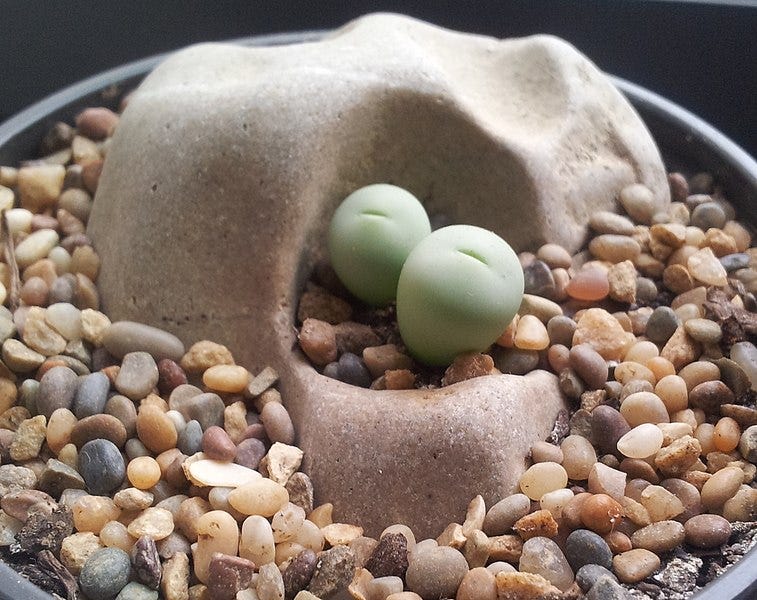🔅 Motherhood, Swiss-Style vs. The Africa Treatment
How a Tiny Plant Sparked a Global Poaching Epidemic

Good Morning from Benin!
Motherhood, Swiss-Style vs. The Nakawere Treatment

If this narrator had given birth in Uganda, her early days as a new mother would have been wrapped in warmth, reverence, and a lot of hot porridge. She would have been a nakawere—a new mother whose only job was to rest, recover, and be doted on by a rotating cast of aunties, cousins, and neighbors. Someone would have made sure she was fed. Someone else would have carried the baby while she napped. Even strangers might have whispered admiration: “Eh, you have done well!”
Instead, she had her baby in Switzerland—where the applause never came. No one cheered when she managed to get through the day on two hours of sleep. No auntie appeared out of nowhere to rock the baby to sleep while she showered. And when she finally got her six-year-old to sit still on the bus, no one in the Swiss public transport system so much as blinked.
It turns out, parenting in the West is an entirely different game—one where you’re not just a mother, but also a teacher, housekeeper, chef, and 24/7 crisis manager.
There is no village.
No backup.
And no quiet room to collapse under the weight of it all.
The narrator and her husband quickly realized they were not built to parent in isolation, but in Switzerland, outsourcing childcare is an expensive luxury. Unlike in Uganda, where childcare is a communal effort—whether through hired help or the unspoken agreement that your neighbor will take your kids today if you take theirs next weekend—Western parenting comes with a particular kind of loneliness.
In the end, the family made a choice: her husband and kids moved back to Uganda, where the children could be raised among grandparents, cousins, and a built-in support system. She’ll live between the two worlds, but at least her children will grow up with a sense of community.
It’s a fascinating read—one that captures how so many African mothers feel after giving birth in strange lands, without the safety net of family. Because isn’t that the right way to do it, after all?
How a Tiny Plant Sparked a Global Poaching Epidemic
In the sleepy South African town of Springbok, Rastaman, a dreadlocked herbalist clad in burlap, rolls spliffs in his dusty shop while muttering about his nemesis, Captain Karel du Toit.
This unassuming backdrop hides a billion-dollar story of plant poaching, corruption, and survival, centered on a seemingly inconspicuous succulent: the conophytum. Known for their bizarre beauty and rarity, "conos" have turned into "green diamonds," coveted by collectors from China to South Korea. And in the process, they’ve transformed a quiet desert town into ground zero for a global ecological crisis.
Conophytums, or conos, are living sculptures: Some look like dumplings or translucent jelly, others like miniature peaches or even bouquets of eyeballs. Found only in South Africa and Namibia’s arid regions, many species are so hyper-endemic they grow on a single hillside. This makes them prime targets for traffickers, who fuel a black market now estimated to rival the trade in rhino horns.
Why the frenzy? Thanks to the internet and the houseplant craze during COVID-19, these tiny succulents became the "it" accessory for social media bragging. A single cono can fetch thousands of dollars in East Asia, where they’re flaunted as status symbols. But as the craze exploded, so did the devastation.
Over 1.5 million succulents were ripped from South African soil between 2020 and 2023, pushing 45% of the species to the brink of extinction.
Back in Springbok, Rastaman swears he’s no poacher, despite brushes with the law and accusations from Captain du Toit, a celebrated "flower detective." Du Toit’s relentless pursuit of plant traffickers turned personal, with Rastaman convinced the captain was out to get him.
Their feud is a microcosm of the larger conundrum: local poverty vs. conservation. For Rastaman, the plants represent survival in a region where unemployment soars at 43%. “Poverty is a crime,” he says. And yet, the environmental toll is undeniable—entire ecosystems are unraveling.
Efforts to curb poaching face massive challenges. Vast desert landscapes are impossible to police, and traffickers use GPS, satellite phones, and social media to pinpoint their targets. Conservationists are overwhelmed, forced to care for thousands of confiscated plants weekly.
The cono crisis is emblematic of a broader issue: how online commerce accelerates ecological destruction. From Vietnamese orchids to South African succulents, plant poaching has become "extinction at the speed of the internet." And yet, solutions like seed banks and sustainable cultivation remain underfunded or ignored. Rastaman’s suggestion—decriminalizing conophytum harvesting and giving locals conservation jobs—offers a glimpse of hope. After all, who better to protect the veld than those who know it best?
To read more on this fascinating piece, and to find out why Captain du Toit himself was arrested in 2024, follow this link.
Africa’s Unique “Skip-Industrialization” Path

Ever feel like you missed a big event and nobody told you? According to The Economist, that’s the story with African economies, which seem to have skipped the typical “industrial revolution” day on the global development calendar. Instead, they’re leaping from old-school farming to urban life, with not enough modern factories in sight. Here’s the gist, according to them:
Farms: Still Too Low-Tech
More than half of Africans still work on tiny plots, often with not much more than elbow grease, no irrigation, where productivity is low, and new tech is scarce.
Cities: Growing, but Not Exactly Booming
Africa’s urban population has soared – in a few years most Africans will live in cities – but these aren’t manufacturing hubs humming with assembly lines.
Manufacturing: …Anyone?
Asia famously propelled millions out of poverty through factories pumping out shoes, cars, and electronics. Africa’s not replicating that script—at least not yet. Smaller-scale African factories often face higher labor costs compared to the country’s wealth levels. The result: few globally competitive factories with lots of jobs.
Services: Saving the Day?
The service sector is mopping up former farm laborers, but it’s mostly informal work—selling wares, operating kiosks, running errands. While “low-skill services” is a questionable fallback, some economists say Africa might follow India’s path (where services took off instead of manufacturing).
Strange but Possibly Successful
Sure, growth is slower without the big industrial job-creation machine. But skipping steps doesn’t have to be catastrophic. Better policy and investment—like improving roads, trade logistics, and electricity—could let Africans excel in whatever industries fit each region best.
Bottom line: Africa is forging its own route: no big, dramatic industrial “lights, camera, action!” moment. Instead, it’s a whirlwind of small-scale services with a dash of modern tech. The question is whether this path will lead to prosperity or more problems.
Let us know – What’s your take?
Food for Thought
“Appetite comes by tasting.”
— Zambia Proverb






I much prefer the African style of parenting to the West's thank you very much 🙂